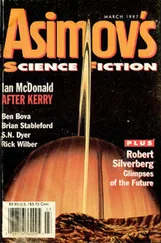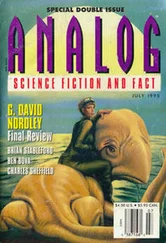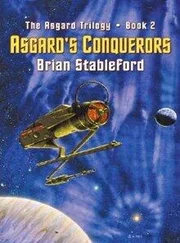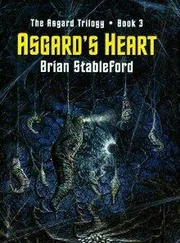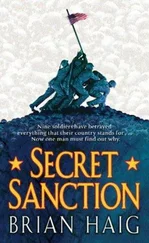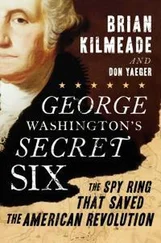“Quite a few, mostly dug in very deep. What was left of the high command had surrendered, of course, but not everyone knew that. Messy job, at first—then it got tedious. Picking up litter.”
“More relaxing, though?”
“Too relaxing,” he said, tersely. He didn’t add anything, although I gave him the opportunity of a long pause.
“And then you came to Asgard, directly from the battleground,” I said, taking up the burden of keeping things going. “A long haul.”
He looked at me suspiciously again. He was right, of course—I was trying to worm a military secret out of him.
“Yeah,” he said. “Long, but fast. I’ve been on slower trips that lasted a lot longer.”
“Still mopping up,” I went on, inexorably. “Chasing a lone android who managed to get off the surface of Salamandra in spite of the odds stacked against him. A human android, made by alien biotech.”
“I wouldn’t know about that,” he lied. “I just follow orders. So should you. You shouldn’t give the captain any grief— she’s already had more than her fair share.”
“No more than you,” I pointed out.
“You shouldn’t give me any grief, either,” he told me. “I can’t beat the shit out of you, because you’re in my unit— but that doesn’t mean that accidents can’t happen.”
“Thanks for the warning,” I said, sardonically. “It’s bad enough that Amara Guur and his Spirellan sidekick are after me, without wondering whether my Star Force buddies are itching to put a bullet in my back.”
“We don’t use bullets,” he observed. “But no matter how cold it gets, flame-pistols work just fine.”
“I can tell that you’ve been under a lot of strain lately,” I said, “so I’ll try to tread as softly as I can. I’m not the enemy, though. You wiped out the enemy, almost to the last not-quite-man. I’m not sure that it’s necessary to be so obsessive about the mopping up. One lousy android can’t be much of a threat to the whole human race, no matter what he did to Saul’s kidnappers.”
“I just follow orders,” he repeated. “So should you. I mean that.”
I didn’t doubt it. He was crazy, of course, but that wasn’t entirely surprising, in the circumstances. There was obviously more to his devotion to his senior officer than mere military discipline, but that was understandable too, in the circumstances. There were probably as many women as men on the ship that had brought Susarma Lear to Asgard, but her little troop was all male, and she had one hell of a glare when she cared to use it—no bigger than a run-of-the-mill G-type glare, perhaps, but a lot more powerful.
“I’m very grateful to the star-captain,” I assured him. “She got me out of a nasty jam back there at the Hall of Justice. I’d never actually thought about joining the Star Force, but it was definitely the better alternative. I know my place. You from Earth?”
He shook his head. “Space-born,” he said. “The belt.”
“Me too,” I said.
“Really? Ceres? I’m from the Trojans.” It was the first sign of real humanity I’d seen in him.
“Vesta, mostly,” I told him. “My father came out from Canada to help build microworlds, so we moved around the ring a lot. We shipped out of the system when things became complicated after the contacts, but we were just crew—we didn’t see a lot of the Tetrax or any of the other humanoids. That was when I heard about Asgard. When the time came to fly the nest… well, it was a long time ago. I’m older than I look.”
“I guessed,” he said. “Tetron biotech. Still mortal, though.”
“Yes. And no more durable, at a guess, than you.”
“You came here alone?”
“No. I was with a party. At first I worked with a guy named Michael Finn—he was Mickey so I was Mike—but he got himself killed. I thought about going home, but I never took the plunge. I still have Mickey’s ship in dock, but can’t afford to fit it out for the haul.”
“You missed the war,” he observed. His voice was level, but somewhere behind the words there was an accusation. In his carefully-shielded eyes, I was a deserter, or a draft-dodger.
“Yes,” I said, tiredly. “I missed the war.”
This time, the pause was enough to prompt him. “They never got to Earth,” he said. “The belt wasn’t so easy to defend. Must have been more than a million people there by then. Scattered, of course—but the Trojans were a target. Everyone I ever knew outside the force was killed.”
“I’m sorry.”
“They paid for it,” he assured me.
“I guess so,” I agreed, keeping my tone carefully neutral.
He wasn’t fooled. “You think we shouldn’t have done what we did to Salamandra?”
“I wasn’t there,” I reminded him—and myself. “I was here, where everybody works overtime to get along, even with the vormyr. Even the vormyr make the effort, most of the time. You had your experience, I have mine. If we see things differently, it’s understandable. We can try to get along anyway, can’t we? Isn’t that what we’re doing?”
“What we’re doing,” he said, stonily, “is mopping up.” He looked away, out across the glittering plain, as if he were trying to lose himself in the eerie, alien radiance. He seemed to me to be already lost. I think he felt that way too.
When I woke up again after my next turn in the bunk I found the star-captain and her lackey in a bad mood. There didn’t seem to be any particular reason for it—they were just jittery. Nothing was happening, and they wanted action.
“Have your people still got a fix on my truck?” I asked, subtly making the point that if we weren’t getting anywhere, neither was Myrlin.
“He’s stopped,” Serne reported tersely.
“You mean he’s reached his destination—Saul’s portal to one?” I asked. The one thing the notebook hadn’t told me about the journey I had to make was the exact location of the effective starting-point: the entry-point to level one. That he had retained in his memory—until he confided it to his belated saviour.
“We don’t know for sure,” the star-captain said. “He may be resting—we don’t know whether he needs sleep as much as we do, but he was designed to pass for human, so he must need some.”
“If so, it gives us a chance to make up some ground,” I said. “Amara Guur can’t be gaining on us.”
“We could take him out so easily,” Serne said, wistfully. “Just one missile. It wouldn’t even dent the surface, let alone take out any innocent bystanders—but your friends in Skychain City won’t hear of it, and the warship’s captain is playing it their way. He’s a frame jockey, of course—not Star Force.”
“The commander agrees with him,” Susarma Lear told him, with a slight sympathetic sigh. “He trusts us to get the job done. It is our job.” Hers seemed an odd combination of resentment and fatalism, less straightforward than Seme’s grim frustration.
“Doesn’t this snow ever melt?” Serne wanted to know.
“Eventually,” I said. “Nothing happens in a hurry out here. Besides which, it’s even less convenient when it’s running water. We’ll have to be more careful from now on. So will Guur’s drivers—I don’t suppose, by any chance, that they’ve suffered any mishaps?”
“No,” said Serne, as he got up, rather ungraciously, to let me take his seat beside the star-captain. “They haven’t gained an inch—but they haven’t lost one either. I can’t see why we don’t just shoot and have done with it—take them out as well as the android. Ten seconds and it’s all sorted— we could argue with the Tetrax afterwards.”
“And communication between humankind and the galactic community would be fouled up for a couple of hundred years,” I pointed out. “The war with the Salamandrans ruined our image, but at least they started it. Now it’s over; we have a lot of repair work to do.”
Читать дальше

